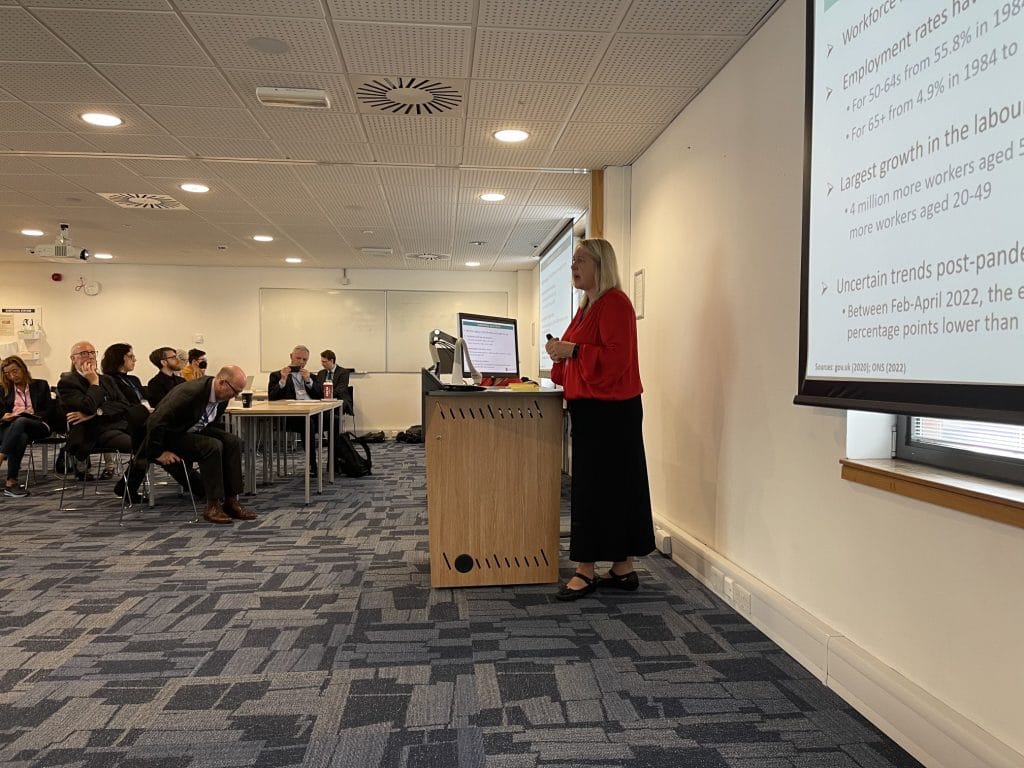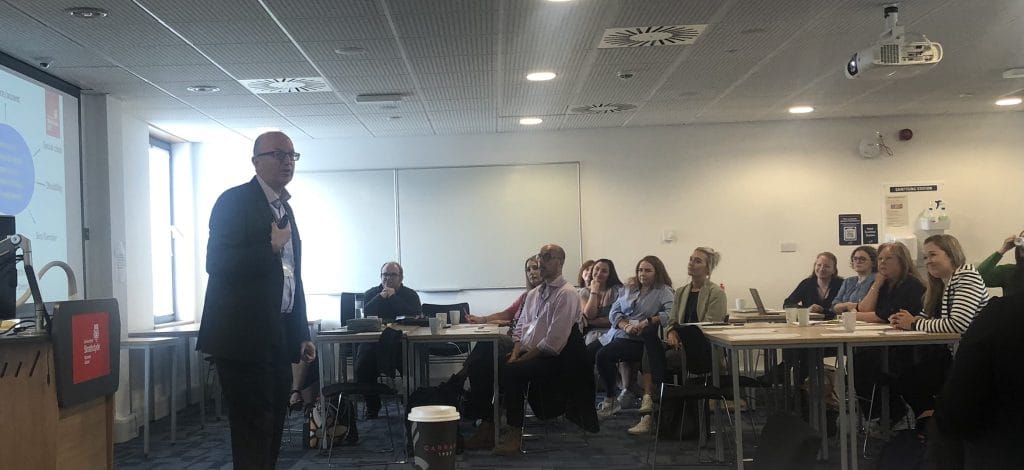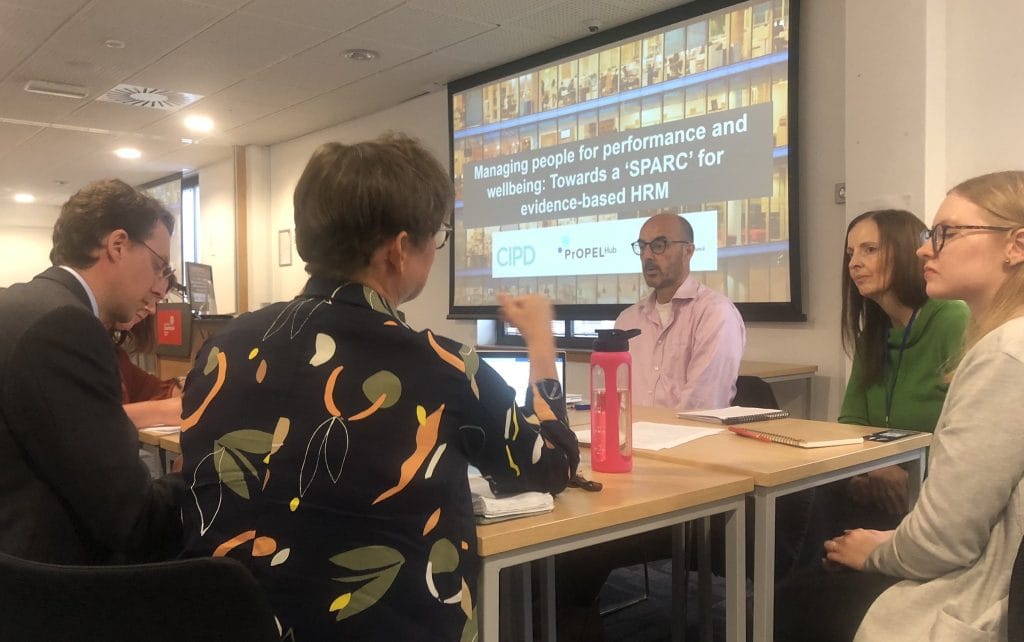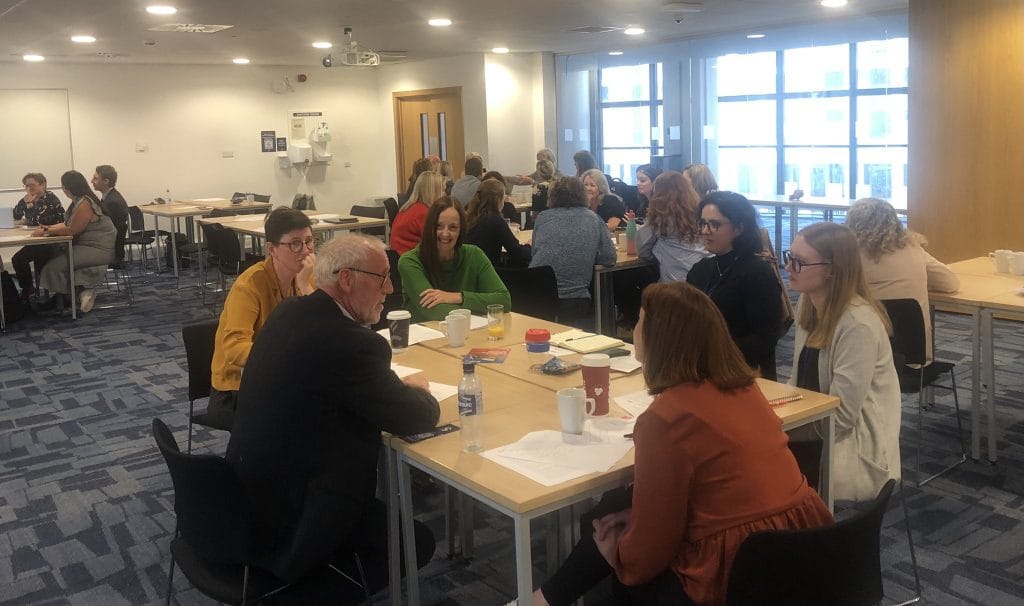At ESRC PrOPEL Hub, our partnership with the CIPD is a crucial component in our work to engage with HR stakeholders and people managers to turn knowledge into practice. We are committed to ensuring that people managers have access to cutting-edge, robust and actionable research; and that the research community can learn from frontline managers about ‘what’s needed’ in workplace research.
That’s why we hosted an interactive event at Strathclyde Business School last month (September 2022) entitled: “Managing people for performance and wellbeing: Towards a Sustainable Practice Action Research Community (SPARC) for evidence-based HRM”. Our aim was to explore the potential for a network bringing together:
- HR professionals and people managers who want to use the latest evidence to inform their practice; and
- researchers and academics conducting cutting-edge research on ‘what works’ in people management.
We were delighted to welcome more than 40 HR leaders, people managers and researchers to the one-day interactive event.
The morning session involved four interactive mini-keynote sessions, with HR researchers presenting research on current workplace challenges, with opportunities for HR practitioners and other researchers in the audience to share their own insights. The slide pack for the presentations can be found here:
- Professor Wendy Loretto and Dr Laura Airey, University of Edinburgh shared their research on the experiences of older workers, identifying important lessons on the need for action to combat ageism and support healthy ageing in the workplace. They invited participants to connect with free line manager training that they are facilitating in collaboration with Age Scotland.
- Professor Dennis Nickson, Strathclyde Business School, shared his important research on ‘aesthetic labour’ – the importance of how candidates look and sound in the selection process. He cautioned that employers’ assumptions as to how their people should look can be counter-productive and reinforce labour market inequalities. His research on these issues is highlighted here. Dennis offered advice on how line manager training can help to challenge assumptions and reduce the risk of discrimination.
- Dr Andrew Bratton, Edinburgh Napier University spoke on delivering sustainable HRM in hybrid work environments, arguing that the new normal of post-Covid-19 offers opportunities for employers to integrate approaches to CSR, sustainability and hybrid working.
- Finally, Professor Kristina Potočnik, University of Edinburgh reported on her extensive research on women’s experiences of the menopause in the workplace. She suggested that people managers need to consider workplace practices that can mitigate the risk of burnout while proactively supporting women to manage their menopause.


The afternoon session involved a ‘speed’ networking mini-workshop facilitated by Meryl Levington, Knowledge Exchange Manager at CIPD. Researchers from across the UK’s university network made short ‘speed’ presentations on how their research could inform evidence-based HRM. HR stakeholders and people managers shared their key issues and ‘what’s needed’ in terms of future research. The ‘asks’ raised by HR practitioners included the need for further research on: how new technologies such as AI can transform people management; fostering positive intergenerational work relations; the relationship between working patterns and employee wellbeing; and identify good practice in managing hybrid workers.


A key take-away from the day was that there is enthusiasm for a future ‘Sustainable Practice Action Research Community’ (SPARC) that brings together academics and HR practitioners to work together on real-world projects to inform evidence-based practice. The CIPD and the ESRC PrOPEL Hub will work with all stakeholders to identify next steps and to continue to build our community.
Attribution: Free Stock photos by Vecteezy